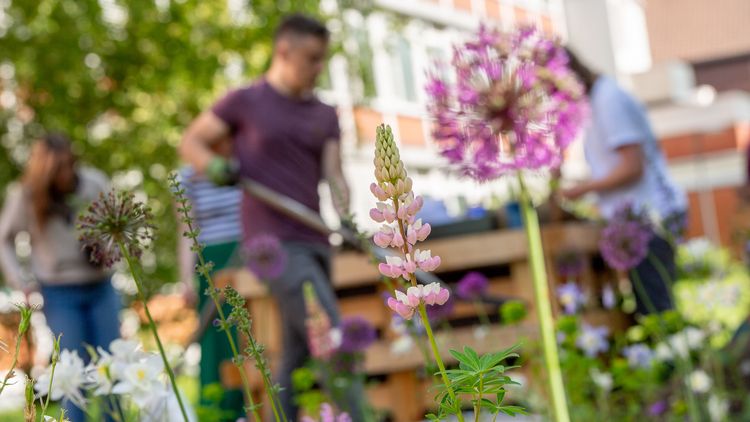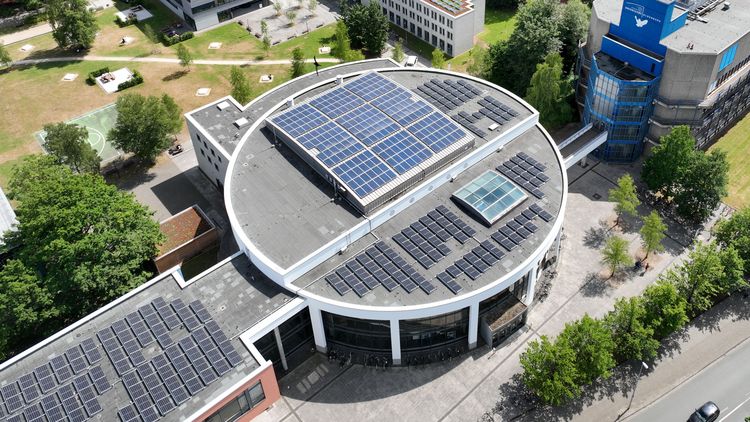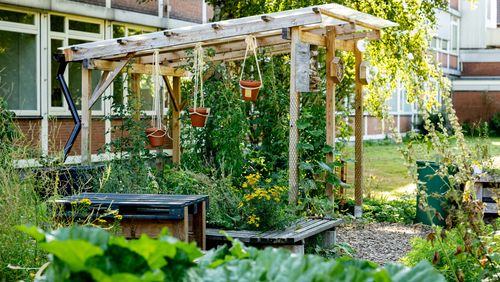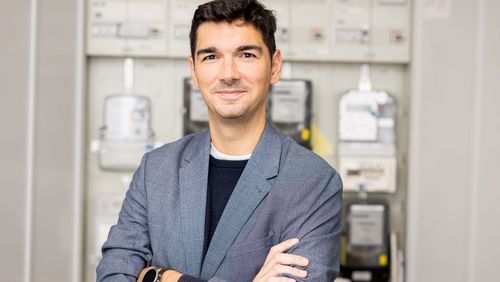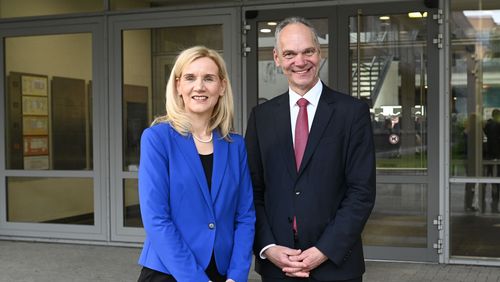The University of Oldenburg has a long tradition of commitment to sustainability. Now the university has been nominated for the German Sustainability Award.
The German Sustainability Award Foundation (DNP) has nominated ten universities in the "Schools and Universities" category - including the University of Oldenburg. The jury of experts highlighted the university's broad interdisciplinary commitment to sustainability issues and its pioneering role in sustainability reporting. Other nominees include the University of Bremen, the University of Lüneburg and the Technical University of Munich. The winners in each category will be honoured in Düsseldorf on 23 November.
The environment, sustainability and climate protection have a long tradition in research, study and teaching at the University of Oldenburg, dating back to its founding in the 1970s. The university's operations are also strongly influenced by the idea of sustainability. The university aims to be carbon neutral by 2030. This is based on a climate protection concept adopted at the end of 2022.
Sustainability research - firmly anchored and interdisciplinary
In the so-called Higher Education Development Plan (HEP), which describes the main activities of the university, the research priorities "Biodiversity and Marine Sciences", "Sustainability" and "Energy of the Future" are defined. These are specifically
- Coastal areas as social-ecological systems in transition between marine and terrestrial areas;
- The link between climate and society, focusing on climate change and its social dimensions. Strategies and measures for adaptation to climate change are central;
- Human-nature-technology interactions, where environmental and sustainability economics, nature conservation and knowledge regulation are of particular importance;
- the cross-cutting area of integrative systems analysis and transdisciplinary design. Here the focus is on conceptual approaches such as resilience, social theory, sustainability dilemmas and integrative methods. In addition, the areas of education for sustainable development, development cooperation, sustainability and innovation management and governance are taken into account.
Sustainability research at the University of Oldenburg takes place in various institutes and faculties. Interdisciplinary networking and cooperation is the core task of COAST, the Centre for Environmental and Sustainability Research.
Topic in studies, teaching and further education
The University of Oldenburg is strongly committed to an interdisciplinary approach to sustainability issues. Sustainability topics are not only taught in relevant Bachelor's and Master's programmes, such as the Master's programme "Sustainability Economics and Management", but also in teacher training, medical studies and continuing education programmes.
Students at the University of Oldenburg are increasingly taking modules with an explicit link to sustainability. The Master's programme in "Sustainability Economics and Management" has made a name for the university beyond the region. Graduates of these courses have exciting job prospects and are embarking on promising career paths in the field of sustainability and climate protection.
Aiming for climate neutrality by 2030
With the climate protection concept adopted at the end of 2022, the University aims to achieve climate neutrality by 2030. This is much more ambitious than the legal requirement (climate neutrality by 2045). The University has set up its own climate protection management to implement the concept with those involved in research, teaching and administration.
Since 1 December 2022, the University of Oldenburg has also been a founding member of the global network of Nature Positive Universities. This means that it is committed to its own measures in the areas of biodiversity and nature conservation.
The university promotes social sustainability, for example through its activities as a Fairtrade University.
Many students are involved in student initiatives that address sustainability in a variety of ways. For example, the Student Council led the way in making the University carbon neutral by submitting a motion to the Senate.

